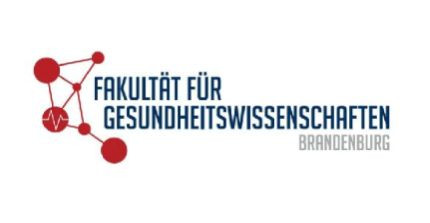New findings on the use of AI in medicine - researchers reveal strengths and weaknesses in the use of the technology
Christoph Wilhelm from the Harding Centre for Risk Literacy at the Brandenburg Faculty of Health Sciences has addressed this question in a review study, the results of which have now been published in The Lancet Regional Health - Europe, a renowned offshoot of the medical journal The Lancet. Together with other researchers, he was able to show that only a few of the studies they analysed adequately examined the patient-relevant advantages and disadvantages of AI-supported treatment in terms of quality. There is an urgent need for research in this area to ensure the well-being of patients.
Together with Prof. Dr Anke Steckelberg from the University of Halle and Dr Felix G. Rebitschek, Scientific Director of the Harding Centre, Christoph Wilhelm evaluated over 2,500 studies on AI in medical treatment. This involved analysing interdisciplinary articles from the past ten years that deal with AI-supported decisions in healthcare. Ultimately, only 19 publications contained the required information on patient-relevant benefits and harms. The research team was able to show that the vast majority of the studies analysed were more concerned with the efficiency and performance of the AI systems used, but usually made no statement about the well-being of patients or the benefits for those treating them. Christoph Wilhelm explains that his findings "emphasise the urgent need for rigorous assessments of the benefits and harms of integrating artificial intelligence into medicine".
However, Wilhelm's team also discovered some positive examples. In 2017, Dr David Shimabukuro and colleagues showed that an AI system for predicting severe blood poisoning was able to reduce the mortality rate of patients from 21.3% to 9%. In another study, an AI was able to assign personalised therapies to depression patients and thus achieve a greater improvement in their symptoms compared to standard therapy. Overall, however, these are exceptions. According to Wilhelm, compliance with strict methodological standards and transparent, guideline-based reporting are essential to ensure the long-term and meaningful integration of AI into medicine.
The use of AI in medicine has increased enormously in recent years. This is due to technological advances in data collection and processing as well as machine learning in general. However, the large volumes of data that are regularly generated in research and clinical operations also make the use of AI extremely attractive. AI systems can sort and analyse this data - such as patient records, genome sequences or clinical studies - much more effectively and examine it for patterns. This process has been further accelerated by the Covid-19 pandemic, explains Christoph Wilhelm: "AI has played a central role in vaccine development, for example for mRNA technologies, and in the analysis of epidemiological data."
The Harding Centre for Risk Literacy
The primary goal of the Harding Centre is to improve risk communication and risk literacy at national and international level, in particular in the areas of health and digitalisation. To this end, an interdisciplinary team researches risk communication, develops innovative methods to improve it and offers training for doctors, medical staff, judges and journalists. The centre has also investigated the error culture of managers and public authority employees and worked with them to develop measures to reduce defensive decisions and improve risk communication. The Centre has developed fact boxes and other easily understandable health information for health insurance companies (e.g. AOK, Helsana) and with public authorities (e.g. Robert Koch Institute, Federal Institute for Risk Assessment). Recent research has focussed on artificial intelligence in medicine and health education for vulnerable population groups.
The Faculty of Health Sciences Brandenburg was founded in 2018 as a joint faculty of the University of Potsdam, the Brandenburg Medical School Theodor Fontane and the Brandenburg University of Technology Cottbus-Senftenberg in order to develop new medical, nursing and medical technology care services as well as innovative study programmes. In cooperation with other universities and research institutions, the faculty contributes to the improvement of medical care in Brandenburg. www. fgw-brandenburg.de
Specialist contact:
Christoph Wilhelm, Harding Centre for Risk Literacy at the Faculty of Health Sciences
Phone: 0331 977-9257
Email: christoph.wilhelm@uni-potsdam.de
Internet: www.hardingcenter.de
Press contact:
Florian Dönau / Antje Horn-Conrad
University of Potsdam/Faculty of Health Sciences Brandenburg
Press and Public Relations Department
Phone: +49 331 977-1474
Email: presse(at)uni-potsdam.de

